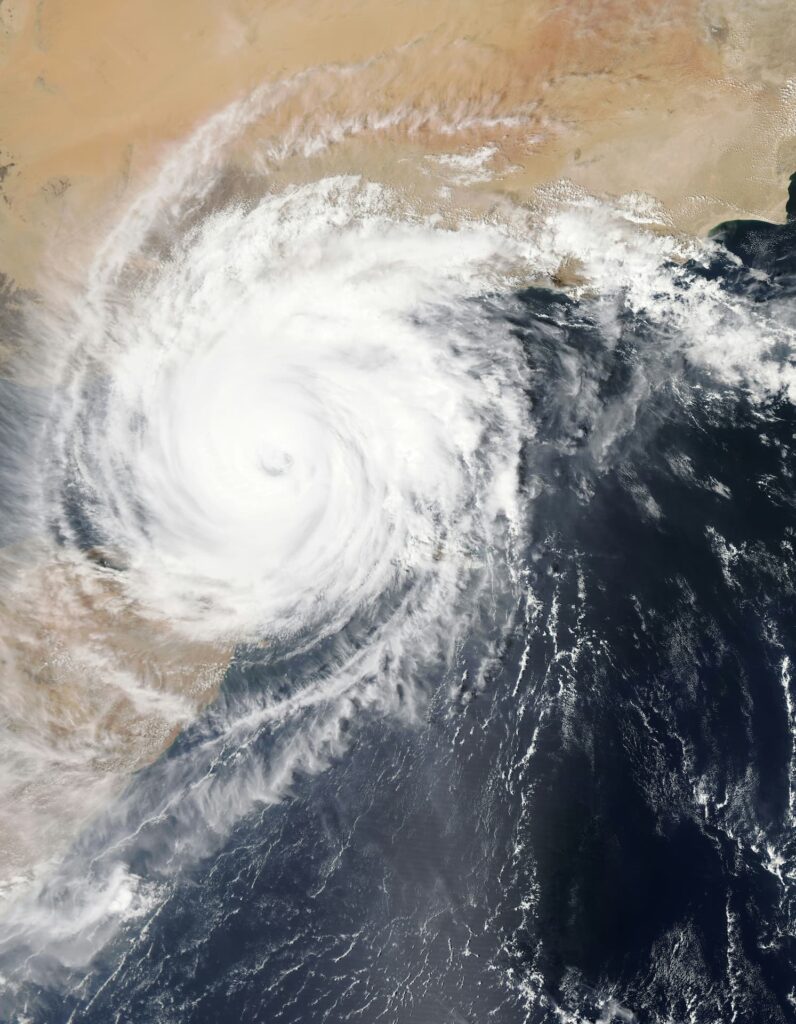This hurricane season, take steps to protect your family
SOURCE: US Consumer Product Safety Commission
WASHINGTON, DC , May 23, 2024 /PRNewswire-HISPANIC PR WIRE/ — June 1 marks the start of the 2024 Atlantic hurricane season, and it could be an extremely active one, according to some hurricane activity forecasts by 2024. The US Consumer Product Safety Commission ( CPSC) is alerting consumers about the increased risk of carbon monoxide (CO) poisoning, fire, and electric shock after the passage of hurricanes and severe storms.
Experience the full interactive multichannel press release here: https://www.multivu.com/players/Spanish/9268151-us-consumer-product-safety-commission-cpsc-carbon-monoxide-poisoning/
“Hurricanes and severe storms cause extensive damage affecting millions of people each year,” said CPSC Chairman Alex Hoehn-Saric. “This hurricane season, I urge consumers to follow CPSC’s safety tips to be prepared ahead of storms to prevent loss of life in their wake.”
Consumers should be especially careful when storms have caused power outages. Carbon monoxide (CO) poisoning from power plants (also known as portable generators) can kill an entire family within minutes. CO is known as the “silent killer” because it has no color or smell. CO poisoning from power plants can occur so quickly that exposed people may lose consciousness before even recognizing symptoms of poisoning, such as nausea, dizziness, or weakness.
On average, more than 200 consumers die in the United States each year from CO poisoning linked to consumer products, according to the CPSC’s latest report on non-fire carbon monoxide deaths linked to consumer product use. (No on-Fire Carbon Monoxide Deaths Associated with the Use of Consumer Products). Some 92 of these deaths are related to power plants.
CPSC data shows African Americans at highest risk of death
Another CPSC report , where race was known, shows that between 2012 and 2022, non-Hispanic African Americans and African Americans accounted for 23% of power plant-related CO deaths, which is much higher than its estimated share of the total population of the United States.
Consumers should follow the safety measures below to protect their families during hurricane season. The Atlantic hurricane season generally lasts from early June to late November.
Loss of electrical power: safe use of a generator
- NEVER operate a power plant inside a home, garage, basement or any other underground area or shed. Opening doors and windows will not provide enough ventilation to prevent the build-up of lethal levels of CO.
- Operate power plants only outdoors, at least 20 feet away from the house, and point exhaust gases away from the house and any other dwellings or buildings where someone could enter. Close windows and other openings (such as the dryer air outlet, exhaust fan, etc.) that are near the power plant or in the path of exhaust gases. Do not operate the power plant on an outside porch or in the garage because they are too close to the house.
- Follow your power plant’s instructions regarding the danger of electrical shock during storms. These may include using an NFPA-rated non-flammable power plant tent, or waiting out bad weather.
- Check that your power plant has been properly maintained; and read and follow labels, instructions and warnings on the power plant and in the user manual.
- When purchasing a power plant, purchase those that have an auto shut-off feature designed to automatically shut down when detecting high levels of CO near the unit. Models with this feature can be marketed with PGMA G300-2018 or G300-2023 and UL 2201 certifications, and it is estimated that they can drastically reduce poisoning deaths. UL 2201 certified models reduce CO emissions, have an automatic shut-off feature, and are estimated to nearly eliminate the risk of death from CO poisoning.
Check smoke alarms and CO detectors
- Properly working CO detectors and smoke alarms save lives! Install battery-operated or hard-wired CO detectors with backup batteries on every floor of your home and outside each sleeping area. Interconnected CO detectors are better because when one goes off, they all sound.
- Make sure there are smoke alarms on every floor of the house, and inside each bedroom.
- Make sure there are CO alarms on every floor of the house, and outside each bedroom.
- Test CO detectors and smoke alarms every month to make sure they are working properly. Change batteries when necessary. Do not ignore the alarm when a CO detector or smoke alarm is activated. Immediately leave the house and call 911.
Dangers when using charcoal and candles
- Never burn charcoal indoors. Burning coal in an enclosed space can produce lethal levels of carbon monoxide. Don’t cook on a charcoal grill in your garage, even with the gate open.
- Be careful when using candles. Better use battery-operated flashlights or candles. If you use candles, do not burn them on or near anything that could catch fire. Never leave candles burning unattended. Extinguish candles when leaving the room and before going to sleep.
Dangers with wet devices:
- Look for signs that your appliances have gotten wet. To reduce the risk of electric shock or electrocution, do not touch wet appliances that are still plugged into power.
- Before using your appliances again, be sure to have them checked by a professional or your gas or electric company to see if they are safe to use. Replace all gas control valves, electrical wiring, circuit breakers and fuses that have been underwater.
Dangers with gas leaks:
- If you smell or hear a gas leak, leave your home immediately and contact local gas authorities from outside the home. Do not use any electronic devices, such as lights or your phone, before going outside.
About CPSC: The US Consumer Product Safety Commission (CPSC) is charged with protecting the public against unreasonable risks of injury or death associated with the use of thousands of types of consumer products. Deaths, injuries, and property damage due to consumer product incidents cost the country more than $1 trillion a year. CPSC’s work has contributed to a decline in the rate of injuries associated with consumer products over the past 50 years. For more information, go to: www.cpsc.gov, página en español: https://www.cpsc.gov/es/SeguridadConsumidor




